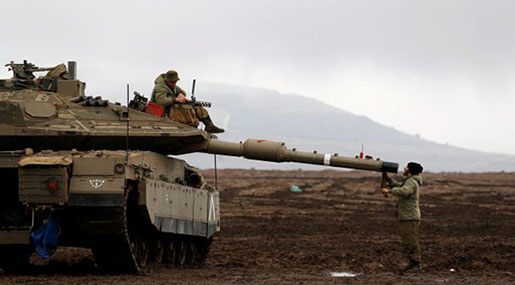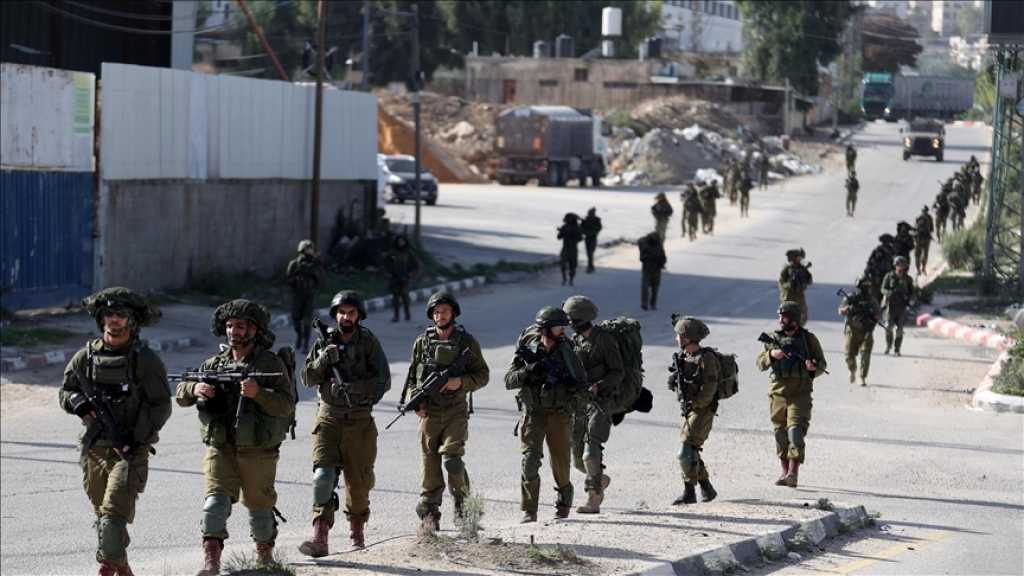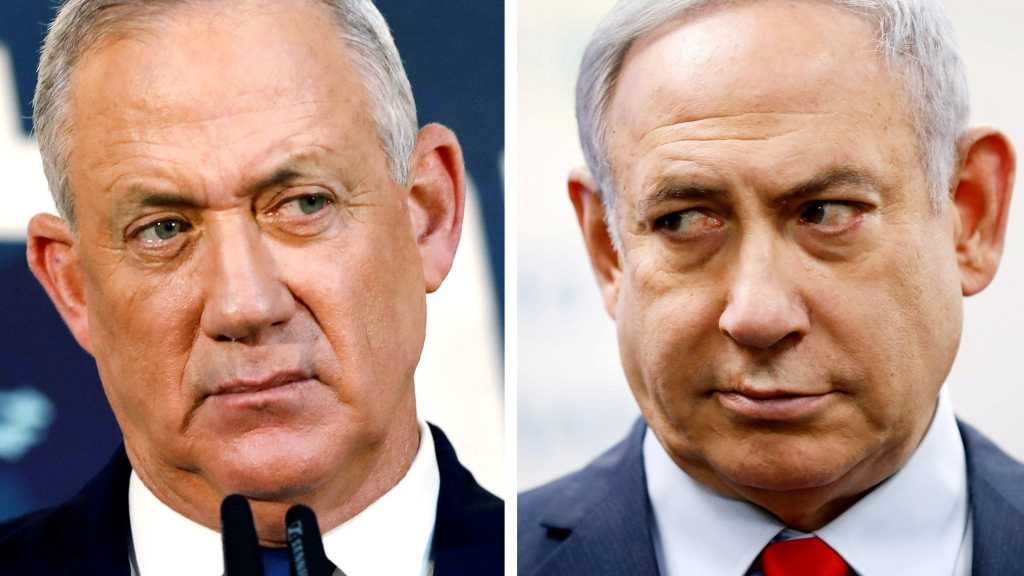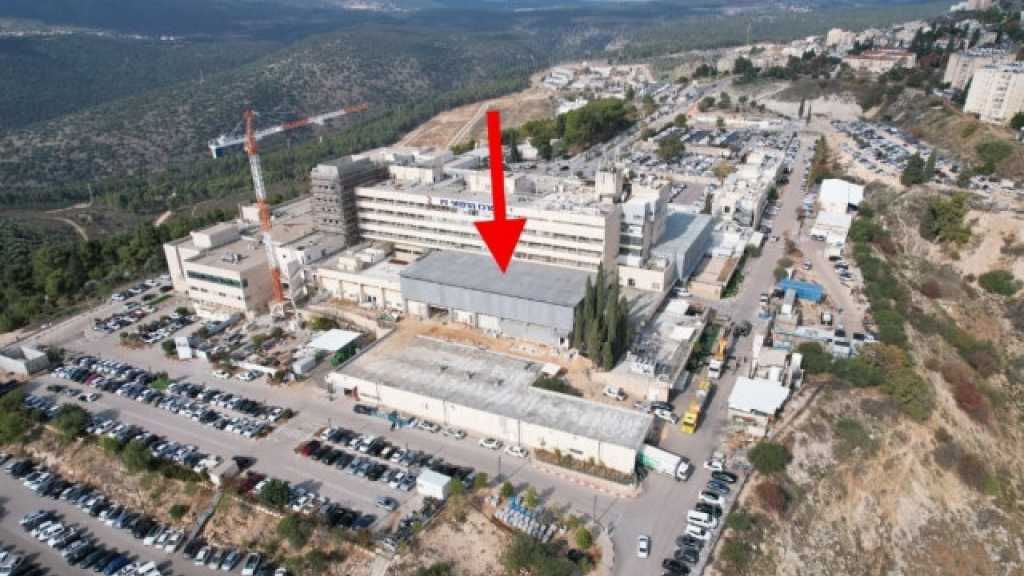
Haaretz: ‘Israeli’ Attempts to Kick Iran Out of Syria Could Escalate Into War

Local Editor
In a recent analysis piece for the ‘Israeli' Haaretz newspaper, Amos Harel wrote:

"There is no Iranian military force in Syria," said ‘Israeli' War Minister Avigdor Lieberman on Tuesday in an interview with the Ynet website. "Iran is not on our border. It's true that there are some experts and advisers, but there is no military force there."
Lieberman, however, only two weeks ago, while visiting the army's Northern Command, warned that "Israel would not allow an entrenchment of Shi'ite and Iranian forces in Syria. Anyone who doesn't understand what I mean would do well to try and understand." Also Zionist Prime Minister Benjamin Netanyahu said last August, at the end of a cabinet meeting, that "wherever Daesh [the Arabic acronym for terrorist ‘ISIS/ISIL' group] exits Iran enters," declaring that ‘Israel' strenuously objects to Iran and its satellites firming up their grip there.
Two weeks later, at a meeting with UN Secretary General Antonio Guterres, Netanyahu claimed that Iran was building facilities for producing accurate missiles in Syria and Lebanon. Even chief of ‘Israeli' military Gadi Eisenkot, who is usually very cautious, said recently in an interview to the online Saudi newspaper Elaph that ‘Israel' demands Iran and its Shi'ite fighters pull back in Syria at least to the east of the Damascus-Sweida highway, which lies 37 miles from the border with the ‘Israeli'-occupied territories in the Golan Heights. "We won't allow any Iranian presence. We've warned them not to build plants or military bases [there]," Eisenkot added.
The stream of announcements the ‘Israeli' officials are making is unclear. Are the Iranians already in southern Syria, and if so, in what capacity - as advisers attached to Shi'ite fighters or as organic units of the Revolutionary Guard? Does ‘Israel' regard them as an actual Iranian force? And are there or aren't there Iranian armaments factories in Syria and Lebanon?
‘Israeli' intelligence officials who were asked this week to make some sense out of this jumble gave the following analysis: Iran's moves in Syria are part of its efforts to shape "the day after," following the victory of the Syrian regime and the collapse of Daesh's caliphate in the country's eastern sectors. A race against time is taking place there.
Harel further considered that Iran is continuously trying to establish a land corridor under its control, going from Iraq through Syria to Lebanon. Thus, General Qassem Soleimani, commander of the Quds Force which is part of the Revolutionary Guard, is investing great efforts into taking the town of Al-Bukamal, which lies in a strategic location on the planned corridor. Soleimani was presented as a national hero in Tehran this week due to the victory over Daesh.
The Iranians are still looking for achievements on the ground since they realize that the next phase, the political settlement in Syria, led by Russia, will be more difficult. The summit meeting convened by Russian President Vladimir Putin last week in Sochi ended in disagreement. Weighty questions remained unresolved. Other moves are also complicated.
With regard to troops on the ground, ‘Israel' believes that there are currently several hundred Iranian combatants in Syria. These belong to the Revolutionary Guard, some serving as advisers and others as commanders guiding Syrian and Shi'ite military operations. Fighters from Iraq, Afghanistan and Pakistan - get paid by Tehran, Harel claims.
According to ‘Israeli' analysis, Tehran wishes to establish an advance outpost in Syria, as it did previously with Hezbollah in Lebanon. This could be a slow and gradual process, but the Iranians have no intention of giving up on this goal. ‘Israel's' moves are meant to at least deny the possibility of an Iranian presence in southern Syria and reduce the chances for establishing bases and a port in northern Syria. This is the backdrop for the threats, which are now backed by a diplomatic "blitz" of diplomats and intelligence officials being sent to the US and European capitals to explain ‘Israel's' point of view, both on southern Syria and developments in Lebanon, following the resignation zigzag of Lebanon's Prime Minster Saad Hariri.
These moves are attracting attentive ears, but it seems that in Syria the horses have already bolted. As far as the Iranians are concerned, they came to Syria to stay. If ‘Israel' tries to compel them to leave it could lead to military friction which could deteriorate into a wider conflict.
HMS Ocean, the UK's helicopter carrier which is part of NATO's Mediterranean fleet, was to anchor in Haifa on Wednesday. Such visits used to be an exception. Aside from the US Sixth Fleet and the odd French vessel, NATO members minimized the display of open military ties with ‘Israel'. Twenty years ago, when ‘Israel' started holding joint naval maneuvers with the US [at that time together with its great friend Turkey] they usually consisted of search and rescue missions. Much ceremony with little substance.
Times have changed. Last month the Air Force held a large joint exercise in the Naqab, called Blue Flag, which hosted air forces from the US and six European nations. Brig. Gen. Amnon Ein-Dar, the head of the air force's air division, told Haaretz that the exercise was the culmination of the air force's annual training plan with foreign forces, in the course of which numerous other exercises were held abroad. Given the regional turmoil, he added, "It's significant that ‘Israel' is part of a coalition of the positive forces. You see here an expression of what an aerial force can provide a country in terms of its strategic and diplomatic ties." Ein-Dar said that the joint exercises provide a good basis for operational collaboration if this is ever needed.
‘Israel' currently benefits from its image in the Arab world as a wielder of immense power, and in Western states there is also a growing appreciation of its military and technological capabilities. The damage caused by the poor performance of the ‘Israeli' forces in the Second Lebanon War has long been forgotten there. The new attitude towards ‘Israel' is connected to the appreciation of its mostly clandestine operations against rival organizations, as part of what is termed the campaign between wars. Military establishments in the West and in ‘Israeli'-friendly Arab countries are well acquainted with ‘Israel's' capabilities. This has led to a growing desire for cooperation with the ‘Israeli' military, with Military Intelligence and other branches of the intelligence services, as part of the war on terror.
It seems the international arena is riper for joint coalitions against terror, especially after the success of the campaign against Daesh in Iraq and Syria. There may be something else afoot: Against the backdrop of the atrocities taking place in the wars in the Arab world, our neighbors take a less severe view of the daily activities associated with ‘Israel's' occupation, including the deaths of many Palestinian civilians in the rounds of war in Gaza.
This ties in indirectly to Eisenkot's interview with Elaph. In fact, these were reciprocal gestures: on the part of the chief of staff who agreed to be interviewed on a Saudi website and on the part of the kingdom in agreeing to broadcast it. Eisenkot mentioned in the interview that he agreed with what the Saudi chief of staff said at a meeting of army chiefs, hosted by the Americans in Washington at the end of October, where the Saudi general talked about the need to block Iran's expansion in the region. In other words, the two have no problem sitting together as colleagues at a conference [in contrast to the Lebanese chief of staff, who bailed out at the last minute due to Eisenkot's presence]. This is no blooming, public romance with the Sunni bloc, but gradually relations are shaping up, ones that would have been unthinkable five years ago.
Source: Haaretz, Edited by website team



